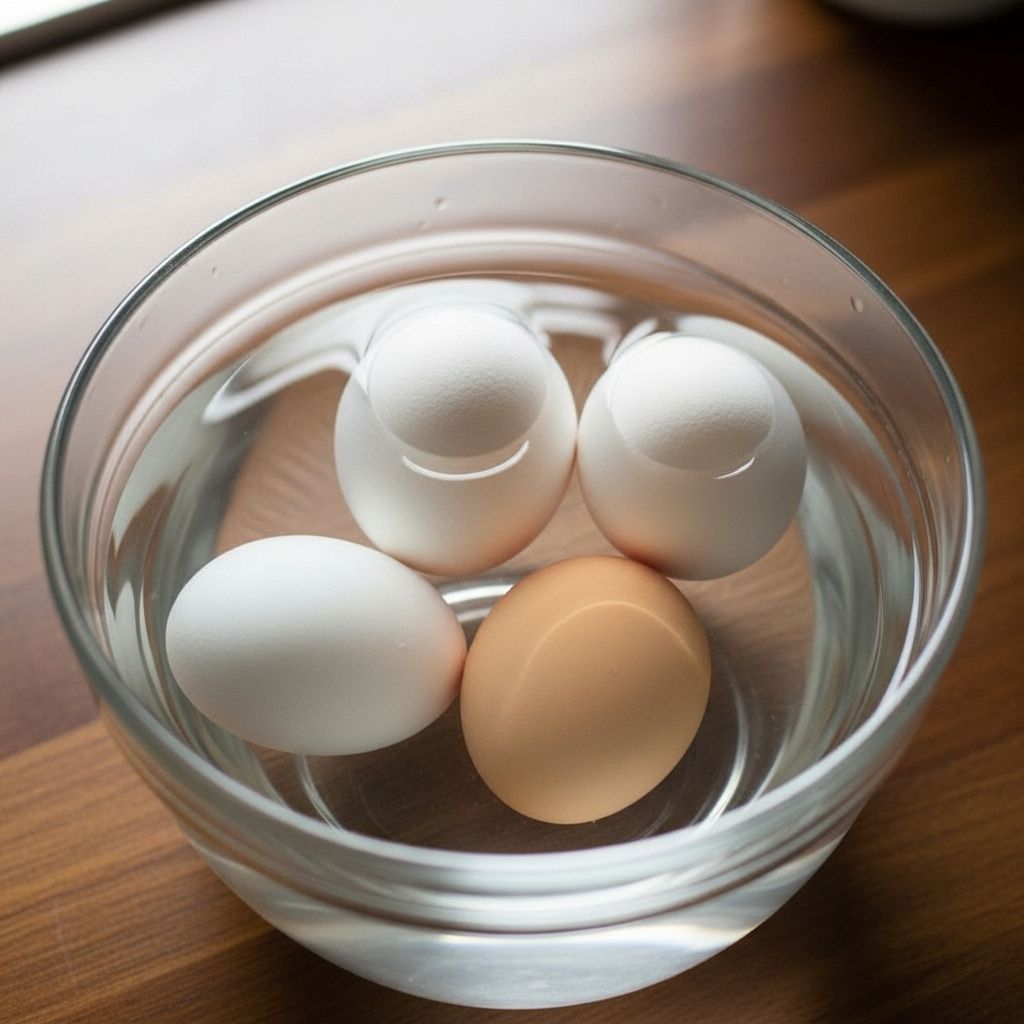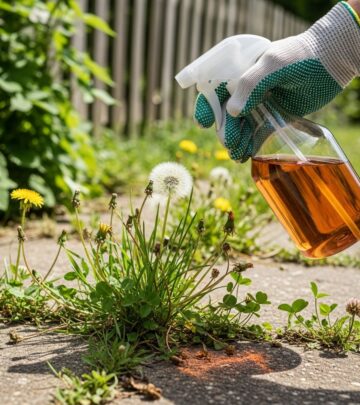How To Tell If Egg Is Bad: 3 Quick Freshness Tests
Master the skill of spotting spoiled eggs and learn essential tips for proper egg storage, safety, and extending their shelf life.

Image: HearthJunction Design Team
How To Tell If An Egg Has Gone Bad: The Ultimate Guide
Eggs are a staple ingredient in kitchens worldwide, valued for their versatility and nutrition. But with fluctuating egg prices and the desire to minimize food waste, many home cooks find themselves asking: How can you tell if an egg has gone bad? This comprehensive guide covers everything you need to know about egg freshness, storage, safety, and the classic tests that help prevent a rotten surprise in your kitchen.
Why Egg Freshness Matters
Fresh eggs not only taste better, but they’re also safer to eat. Consuming eggs past their prime can pose health risks, particularly due to the potential for harmful bacteria such as Salmonella. Understanding how to store eggs and spot signs of spoilage helps ensure you’re getting the most from every carton or dozen you buy.
How Long Do Eggs Last?
Eggs, when stored properly in the refrigerator, can last for weeks past the date printed on their carton. Here are some general guidelines:
- Sell-by or expiration date: Purchase eggs before this date and store them promptly for optimal freshness.
- Refrigerated eggs: Store-bought eggs in their original carton can stay safe up to 3–5 weeks after purchase, provided your fridge is set at or below 40°F (4°C).
- Farm-fresh eggs: If unwashed, these eggs may last about 3 weeks at room temperature, but refrigeration is still best for maximum shelf life.
Egg Freshness Timeline Table
| Type of Egg | Unrefrigerated Shelf Life | Refrigerated Shelf Life |
|---|---|---|
| Store-bought (washed) | 2 hours | 3–5 weeks |
| Farm-fresh (unwashed) | Up to 3 weeks | 3–5 weeks |
Signs An Egg Has Gone Bad
Recognizing the signs of a spoiled egg can help prevent foodborne illnesses and waste. Here are the most telling indicators:
- Unpleasant odor: A sulfuric, rotten smell is the most reliable sign of a bad egg. This odor is present whether the egg is raw or cooked.
- Visual cues: Cracks, leaks, or powdery/moldy spots on the shell are warning signs.
- Changes in texture: Watery or unusually thick egg whites, or a yolk that sits off-center and breaks easily, often indicate an older or spoiled egg.
If you notice any combination of these signs, it’s best to err on the side of caution and discard the egg.
Classic Egg Freshness Tests
The Water (Float) Test
The float test is a trusted, quick way to gauge egg freshness:
- Fill a bowl with cold water.
- Gently place the eggs in the water.
| Egg Position | Meaning |
|---|---|
| Egg sinks and lays flat | Very fresh |
| Egg sinks, stands upright | Still safe but aging |
| Egg floats | Bad, discard it |
This phenomenon occurs because, as eggs age, air seeps in through tiny pores in the shell, increasing buoyancy.
Crack-and-Sniff Test
Break the egg into a clean bowl and give it a sniff. A fresh egg will have little to no odor, while a spoiled egg emits a distinct rotten smell, regardless of how recently the expiration date passed.
Visual Inspection
Look at the egg’s shell and contents. Fresh egg whites are thick and slightly cloudy, while yolks appear plump and round. Any sign of unusual coloration, mold, or off-putting texture means the egg should be discarded.
What About the Expiration Date?
The date printed on your egg carton is typically a “sell by” or “expiration” date, but eggs often remain safe and usable weeks beyond this if they’re properly refrigerated. Always use your senses and the above tests in addition to date codes.
How To Store Eggs Properly
Keep Eggs Refrigerated
Eggs should always be stored in the refrigerator, ideally at 40°F (4°C) or below, to inhibit bacterial growth and maintain freshness. In the U.S., commercial eggs are washed and lose their protective cuticle, making refrigeration essential.
Store Eggs in Their Original Carton
- The original carton helps prevent eggs from absorbing strong odors and moisture loss.
- The carton also protects eggs from damage and keeps the ‘use by’ date in view.
Best Spot in the Fridge
Keep eggs on a center shelf toward the back of the refrigerator, where temperatures stay coldest and most stable. While many fridges have an egg holder in the door, this area is subject to frequent temperature fluctuations that can shorten egg shelf life.
Don’t Wash Store-Bought Eggs
Store-bought eggs have already been cleaned to strict safety standards. Washing eggs at home can increase the risk of bacterial contamination. If the shell is dirty, gently wipe it with a dry, clean cloth.
Common Egg Storage Mistakes to Avoid
- Storing on the counter: Eggs should not be left out at room temperature for more than two hours to avoid bacterial growth.
- Placing in the refrigerator door: Avoid storing eggs in the fridge door, which is prone to temperature swings with frequent opening.
- Storing uncovered: Eggs without their carton can absorb fridge odors and lose moisture.
- Keeping cracked or dirty eggs: Discard any eggs with cracks or leaks, as they can harbor bacteria.
How To Bring Eggs to Room Temperature
Some recipes require room temperature eggs. To achieve this safely, remove eggs from the refrigerator about 30 minutes before cooking or baking, or submerge them briefly in lukewarm (not hot) water. Never leave eggs out for more than two hours, as this raises the risk of spoilage.
How To Handle Farm-Fresh Eggs
Farm-fresh eggs often retain their natural ‘bloom’—a thin coating that protects against bacteria. If you plan to store farm eggs at room temperature, do not wash them. Once washed, they should be refrigerated immediately. Regardless, refrigeration extends the shelf life of all eggs considerably.
Using Older Eggs vs. Fresh Eggs
While it’s best to use the freshest eggs for dishes where texture and flavor stand out (like fried or poached eggs), slightly older eggs are still perfectly fine for most uses. In fact, older eggs can be preferable for hard boiling, as they’re easier to peel thanks to the breakdown of the membrane inside the shell over time.
Best Uses by Egg Age Table
| Egg Freshness | Best Uses |
|---|---|
| Very fresh | Fried, poached, scrambled, omelets |
| Medium-aged | Baking, hard boiling, casseroles |
| Old (still passes spoilage tests) | Baking recipes where egg is cooked thoroughly |
Frequently Asked Questions (FAQs)
Q: How can I tell if an egg is bad without cracking it?
A: The water float test is a safe, easy way to check. Place the egg in a bowl of cold water—if it floats, it’s best to discard it. If it sinks and lays flat, it’s very fresh.
Q: Are eggs safe to eat after the expiration date?
A: Eggs are often safe several weeks beyond the date on the carton if they’ve been stored properly in the fridge. Use the float test or crack-and-sniff method to double-check freshness.
Q: Is it safe to eat eggs that have a crack but aren’t leaking?
A: It’s best to discard cracked eggs, as bacteria can enter through the shell and compromise safety.
Q: Should I wash eggs before using them?
A: No, washing store-bought eggs can remove their protective coating and increase the risk of contamination. Just wipe dirty eggs with a dry cloth. Farm-fresh eggs should only be washed right before use if needed.
Q: Can I freeze eggs to extend their shelf life?
A: Yes, eggs can be frozen out of the shell for longer storage. Beat the whites and yolks together or separate them before freezing in airtight containers.
Final Thoughts
Knowing how to tell if an egg has gone bad is a practical skill every home cook should master. By paying attention to the signs of spoilage, using classic freshness tests, and following proper storage methods, you can safely enjoy eggs while minimizing food waste. Remember: when in doubt, toss it out!
References
- https://www.southernliving.com/is-it-safe-to-leave-eggs-on-the-counter-11700709
- https://www.southernliving.com/how-to-store-eggs-8685800
- https://www.southernliving.com/where-to-store-eggs-in-fridge-8777504
- https://www.southernliving.com/should-eggs-be-refrigerated-8727885
- https://www.southernliving.com/should-you-wash-fresh-eggs-8647446
Read full bio of Srija Burman










